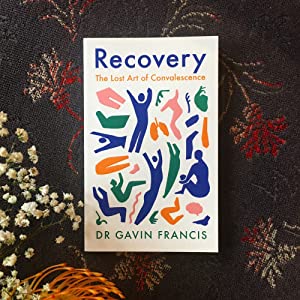
Today’s post is by writer Mirella Stoyanova (@mirellastoyanova).
Note from Jane: Mirella’s original title for her piece was “I’d Rather Be Writing.” I retitled it to make a different point, one that I deeply hope more writers truly grasp and understand, for their sanity and success. I’m grateful to Mirella for her graciousness in letting me retitle.
I have always wanted to sit at the popular kids’ table.
To know that I am enough, as is, is possibly one of the most difficult lessons I have ever had to learn. It’s what led me to become a therapist, and like all good life lessons, it’s one I know I will revisit throughout my lifetime, albeit in new ways.
So it should come as no surprise that my entry into the field of writing might entail a similar kind of learning curve. I can’t help but be lured in by well-intentioned writing advice and industry professionals (some of whom I embarrassingly relegate to near celebrity status) who dole it out.
Last spring, I completed an early draft of my memoir and humbly discovered soon after that fame and fortune would not immediately (or perhaps ever) follow should I decide to pursue the long and winding path to traditional publication.
I was pregnant and due any day, so I took the most reasonable suggestion I was offered: to set my manuscript aside for a nondescript period of time. I then diverted my attention to what other writing-related work I could do as I recovered from childbirth.
Up until that point, I had read and followed the very sensible advice dispensed in two books—Before and After the Book Deal by Courtney Maum and The Business of Being a Writer by Jane Friedman—so I had a few ideas about how I wanted to direct my energy. I was going to continue to learn about platform building. I was also going to figure out what it meant to be a good literary citizen and, I hoped, be one.
I was noble in my pursuit those first few months of my son’s life, even if slightly ineffectual. I read books and attended workshops on related topics, tested out a writing-focused social media page (and failed miserably), and even lugged my husband and our newborn son to an event at our local library where I bought a few 99-cent board books (which was lovely, but ultimately unhelpful).
Being relatively new to the literary world meant that I had only vague notions of how to go about these writing-adjacent activities. I knew little in practice about what it meant for me to build an author platform. With limited time, energy, and no real writing community, I found myself at a loss for how to direct my efforts.
Around this time, I stumbled onto a few popular writing-related resources on social media and while previously I had only ever used my account to follow authors I admired, the lure of indispensable writing advice and built-in community called me right in. I began to engage (as you do) and was delighted to find myself interacting with industry experts of all stripes.
And I’ll be honest, I learned a lot. I studied and honed my craft in virtual workshops led by industry professionals so knowledgeable and passionate about storytelling that I had no doubt as to the quality of their instruction. I also engaged in meaningful conversations with other writers about the industry at large—the challenges it faces, as well as practical solutions for navigating the publishing landscape as an emerging writer.
Then something funny happened. Sort of.
In finding the platform-building content I was so desperately looking for, I somewhat, if only temporarily, lost myself.
It’s a compelling idea for any emerging or otherwise distraction-prone writer—that there is something other than a strong grasp of craft and sheer will that one needs to have to achieve literary success. Like the notion that I must wear the latest trendy clothes or that my hair must be Pantene straight to sit with the popular kids.
I mistakenly believed that to get agented and eventually published that I would need to build an author platform on social media—and that I needed to do it yesterday. Never mind the fact that I am not a published writer nor do I have any literary background or experience.
And I, like any other human being who came of age in today’s quick-fix society, bought right into the hype.
Now I’m going to give myself a little bit of grace here. While ordinarily I consider myself to be highly focused, I gave birth to a very cute, (now) months-old distraction that might have you believe otherwise.
Still, for a while there, things got pretty unhinged.
I fretted over photos, worried about how I would out myself as a writer to friends and family, and prepared—mind, body, and soul—to sell myself out to the creator economy. It was easy to do, after all, much easier than sitting my butt down in a chair and revising my manuscript.
My desire to be liked by these individuals—agents who I may one day query, writing professionals who kindly respond when you comment on their social media pages and offer no shortage of both free and paid opportunities to connect and be a part of their literary communities—almost entirely eclipsed any and all other perspectives on my writing career, including the most important one I need to stay grounded in moving forward. My own.
While author platform is important, I think new writers are particularly vulnerable to getting the order of operations wrong.
The author platform follows the work. Not the other way around.
Notably, none of the authors I admire had particularly robust social media platforms before they became successful.
Why should I, a therapist from Seattle, with my a la carte MFA?
I did post about my writing, eventually, and although (mercifully) none of my friends or family unfollowed me, I later archived the platform-specific content that I wrote up, despite it performing relatively well.
I realize now that my author platform follows from who I am, not how I look on social media—and that it builds from my writing and from my work and membership to various legitimate communities that I show up to and for in very real ways both on and offline—like the social work community here in Seattle and the community of transracial adoptees of which I am a part, here in the Pacific Northwest.
And while I appreciate the advice of well-meaning publication professionals and their effort to build a platform for their businesses (which are not based in the work of writing but rather the work of marketing), as a writer myself, as memoirist of color, and as someone who writes about personal trauma I have experienced, I have a lot to lose if I blindly follow anyone’s half-baked opinion about how to build an author platform, even if it is an expert one.
So I’m excusing myself from the popular kids’ table for now. I’m no longer interested in fitting in at the cost of alienating myself from the very real connections that I have made and choose to maintain over social media.
I know I am enough, as is, and that my people will find me, eventually. But until then, the truth is, I’d rather be writing.
Mirella Stoyanova is an emerging writer, speaker, and therapist. She is currently revising her debut memoir with plans to seek literary representation later this year. To learn more, visit her website here or her Instagram @mirellastoyanova.






